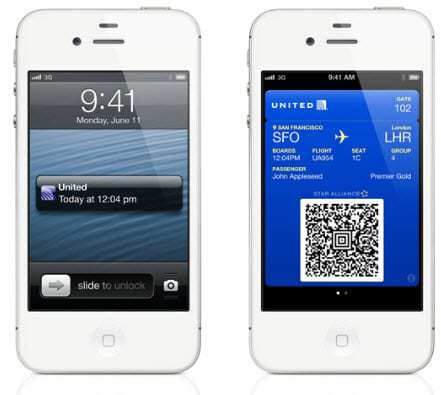Apple’s plans for mobile commerce are no secret
Apple has been somewhat cautious when it comes to the matter of mobile commerce. The company does have an interest in the field, but has expressed concerns when it comes to the level of security that exists in the mobile commerce field as it exists currently. Much of mobile commerce is based on NFC technology, which facilitates the transmission of digital information over short distances. While NFC has aided the emergence of mobile commerce, it has also attracted numerous malicious parties to the field, all looking to exploit the financial information of people making payments from a mobile device.
Apple made its concerns regarding NFC technology clear when it unveiled its iPhone 5, which did not support the technology in any way. Since then, Apple has been looking for an alternative to NFC that could help it break into the mobile commerce field without being exposing anyone to significant security risks. This is where the Passbook platform comes into play.
Passbook is an unsuspecting mobile commerce platform
Passbook was initially launched in September of 2012, but the first stable version of the application was only made available in May of this year. The application is designed to turn an iOS device into a digital wallet, storing a wide variety of data and making this information accessible to users in an efficient manner. Passbook can store electronic tickets for travel and entertainment events as well as loyalty rewards from retailers and reservations from restaurants. The application is capable of scanning 2D barcodes, such as QR codes, and can take advantage of a variety of location-based services.
One of the most notable, yet largely ignored, features of Passbook is its ability to process mobile payments. The application supports online shopping and in-store payment services through PassKit. Through this service, Passbook can initiate mobile payments by scanning a code or being fed information from a payment terminal through a USB connection. The transaction is authenticated through the PassKit database, allowing Passbook to determine whether payment is being issued to a legitimate business or not. The application also provides users with the ability to customize their payment options based on the stores they visit.
Passbook flies below the radar when it comes to mobile commerce awareness
Apple has made no effort to shroud its mobile commerce efforts in secrecy, but few people seem to realize that Passbook is actually a mobile commerce platform. This may be due to the fact that many people believe that mobile commerce refers only to mobile payments when, in fact, the term encompasses a wide range of activities conducted from a smartphone or tablet device. Furthermore, Passbook may not represent the type of mobile commerce platform that Apple fans would have expected from the company, but it may be the best platform they have access to currently.
